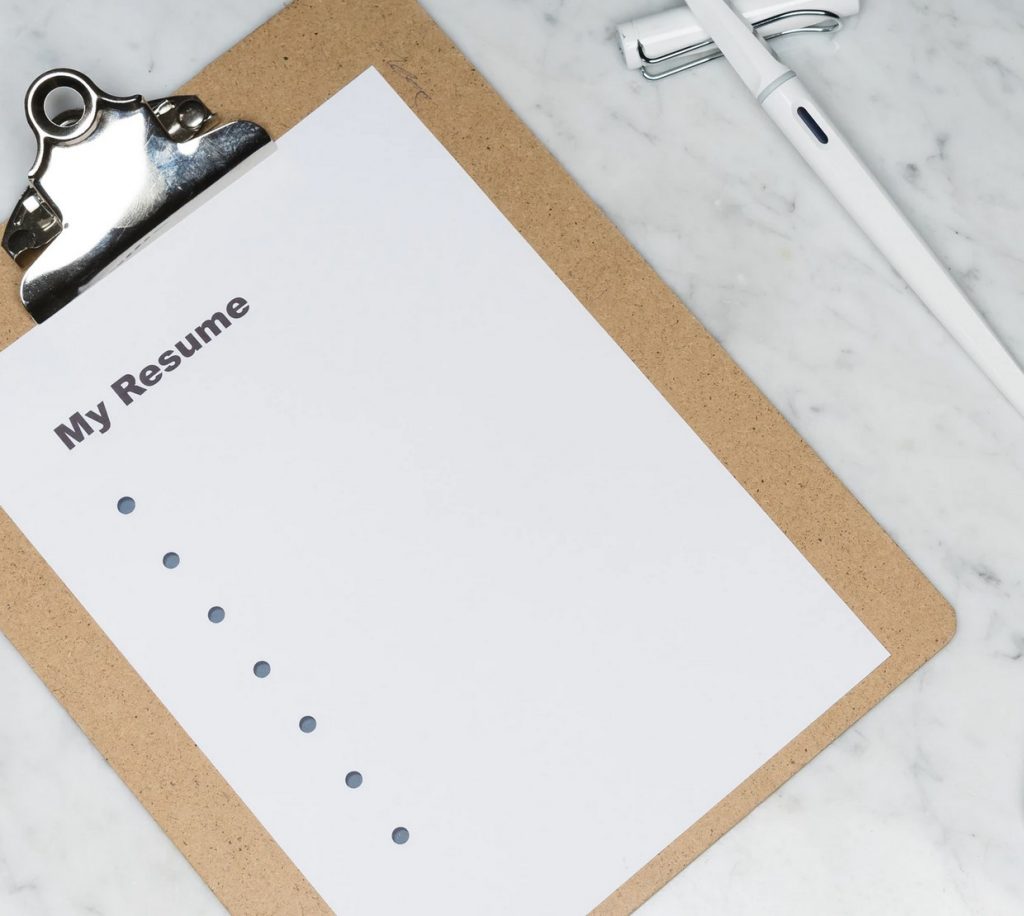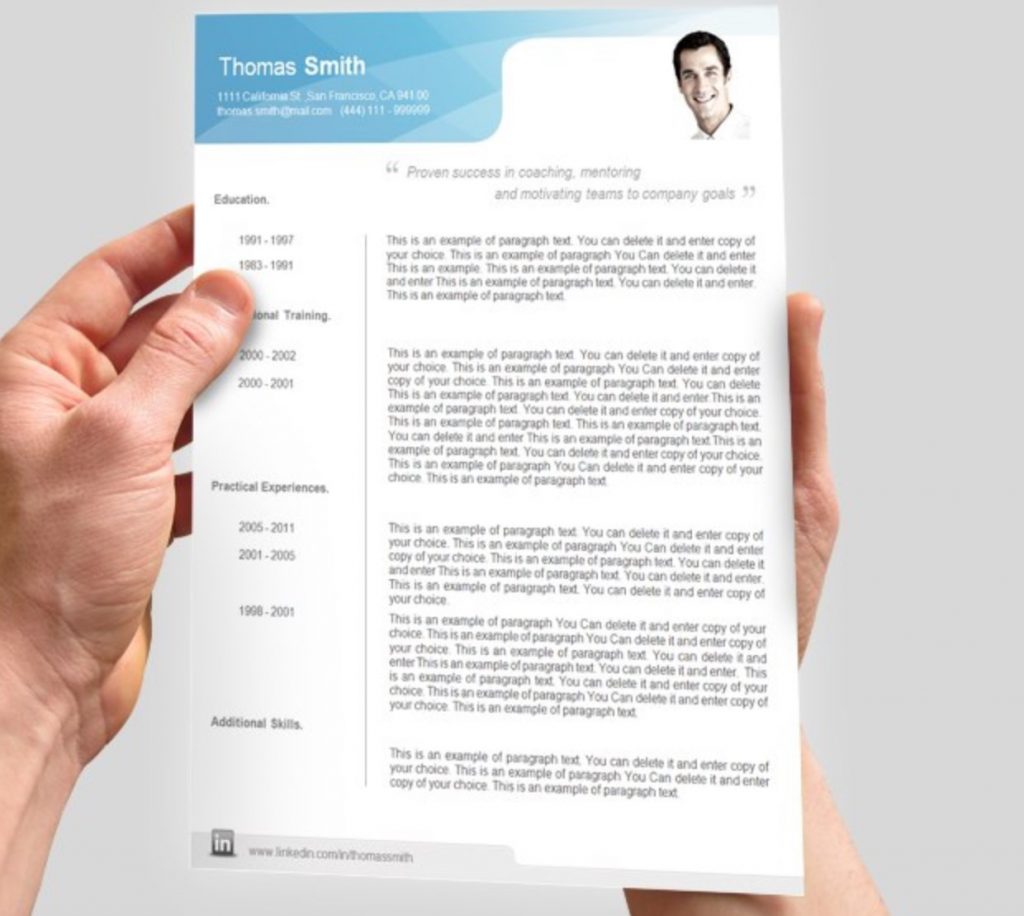No matter how confident you are with your experiences and skills, writing a resume isn’t easy. It can be stressful as seemingly harmless mistakes can sabotage your chances of getting hired. Even the most meticulous of the applicant can make mistakes. Even though some mistakes may slip you by, it doesn’t mean they will also slip the employer. Probably, it might be the first thing they will see in your resume. If your resume isn’t opening your way to the interview door, there are high chances you are making these grave mistakes.
1. Bad Grammar and Spelling Mistakes

Grammatical errors and typos destroy your credibility big time. These are weighty mistakes. With such errors, the employer will assume that you are the kind of person who doesn’t pay attention to details, can’t write, or doesn’t care about the job.
Luckily, you can easily fix these mistakes. Proofread. Re-read your resume. Ask for assistance from a friend, ResumeWritingLab – a professional free resume review service, just run it through Grammarly – free grammar and spell checker, or through free Reverso’s spell checker.
2. Not Using Keywords

Keywords help you get noticed. If you don’t include them the way they are listed on the job listing, you won’t appear to be a strong match for the vacancy. Ensure you include the right keywords as it shows that you meet even the most basic requirements. Note all the keywords the employer has used and mention them in your resume.
3. Making Claims With No Measurable Evidence

The recruiter is most interested in the results you achieved in your past positions. If you don’t demonstrate or provide quantifiable results, it will appear that you undertook your responsibilities but didn’t achieve actual results or take the initiative.
If you boast of how you improved process efficiency or increased sales, support those claims with an explanation and real statistics of how you accomplished as you say.
4. Too much Information

Many applicants make this one mistake – sharing too much information about them. Yes, you are a complex professional with a wide range of skills and many fascinating interests, but the recruiters aren’t interested in knowing you as a person. All they want to know is how you will profit the company in that specific position. Don’t include hobbies unless the hobby you want to include is directly relating to the position. Follow this when mentioning your previous jobs. Avoid mentioning non-essential jobs.
Use your resumes to highlight your past educational and career achievements and show how you are the best fit for the position. Leave off hobbies and interest segment unless your resume will appear short without it. If you include that section, make it short by only mentioning somewhat relating to the skills required in the position. If you have minimal experience, ask a resume service writer for assistance. Since they are professionals in that area, they will know what to add for your resume to look appealing.
5. Missing Contact Information

You are drafting the resume with the intention of being invited for the interview. If you fail to provide your contact information or give incorrect information, it will make it hard for the recruiters to contact you. Be detailed enough and recheck whether you have provided the correct contact information before submitting your resume.
Be careful of the format you use when adding your contact information. Don’t paste your contact details as an image or at the header part of the word document. Applicant tracking systems (ATS) can’t read such info, and it will list them in the system as incomplete or missing.
6. Adding Obvious Skills

In this technology era, recruiters assume that all candidates have office suite knowledge. PowerPoint, Excel, or Microsoft Word aren’t skills to include in your resume anymore. Instead, make good use of that space by adding advanced technical knowledge you have – for instance, Adobe Creative Suite, Google Analytics, or SQL. Such skills will set you apart from other candidates, as they are compelling to the hiring managers.
7. Using Passive Language

It’s boring to read a resume written in passive language. It sounds confusing, vague, and uses many words. Worst of all, it tangles preposition phrases. In passive sentences, the subject of the sentences becomes the action object. For a stronger effect, use compelling “action” and an active voice.
Example of Active vs. Passive;
- Active – “the team achieved a 40% revenue growth in just one year”
- Passive – “40% revenue growth attained in one year”
- Active – “promoted to a managerial position after just nine months”
- Passive – “promotion to the managerial position was given to me after just nine months in the company”
8. Lack of Visual Appearance

A white and black resume with adequate spacing and proper headings will stand out rather than using software that will bring out something overly complex. If your resume is not visually appealing or is difficult to read, there are high chances it will be rejected.
Ensure your resume doesn’t go out of hand with different neon colors, graphs, and fonts. Make it easy to follow and read by balancing font size, white space and keeping each side of the margin an inch long. Avoid using long sentences; instead, use bullet points and not letters or numbers. In short, make your resume appealing and easy to read.
9. Allowing Inconsistences

The least details you may view as insignificant, such as incorrect lining up dates, may raise a red flag to the recruiters.
Double-check your resume to ensure the flow of your information matches your other public profile. For instance, if you have indicated a certain starting date in a specific position in your LinkedIn profile, ensure your resume states the same. This should be the same with career titles; make sure it is consistent in all your professional platforms. Small mistakes such as these may signal the employer you aren’t honest or truthful. Before sending out your resume, ensure your information aligns with what is in your LinkedIn profile.
10. Using Generic Resume

Recruiters want to see evidence that you are the perfect fit for the job. This can’t be achieved if you submit a vague resume that can be applied to any other job. In every position you are applying for, ensure you always customize your resume to fit the requirements. Read the job description carefully and only include only the most relevant information.
Final Thoughts
Even the most qualified candidate may not get their dream job if their resume has very simple errors. Mistakes make the hiring manager think you are either unqualified, are careless, or just numb. When applying for your next job, give your copy to a resume writing service to check before submitting it, and you will be sure to land that job offer. Remember, a resume is the first impression the employer will get of you. Make it as appealing as possible.









